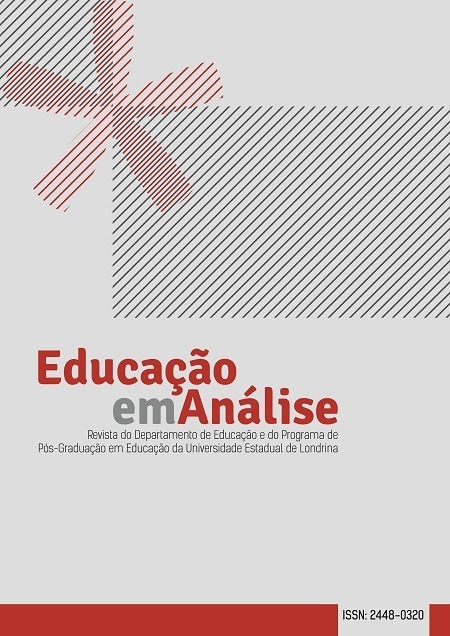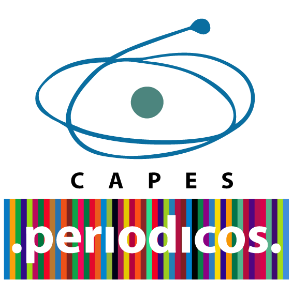Teaching and learning to read and write as a humanizing process
DOI:
https://doi.org/10.5433/1984-7939.2020v5n1p7Keywords:
Education, Mother tongue, Reading and writing, Activity, Humanization.Abstract
This article aims to reflect on teaching and learning to read and write as a humanizing process. The bases for this reflection are the assumptions of the Cultural-Historical Theory, which defends the socio-historical-cultural conditionality of man, of the Activity Theory, which proposes the activity as fundamental in the constitution of social subjects and, also, of bakhtinian thought about enunciation. Because of this reflection, we affirm that the best way to teach and learn the mother tongue is to think, plan and organize it in order to promote in the student the ability to read constituting a responsive understanding for statements and write producing statements addressed to real readers. Reading and writing projects are suitable for this purpose when developed through activities whose object is the discursive enunciation, and the study actions focus on the reading of statements produced socially and historically, and the production of statements in their social function. Thus, the work with reading and written production is no longer merely formal and becomes an instrument of humanization of the student, who will be able to gain an understanding of others' statements and the ability to produce statements for others.Downloads
References
BAKHTIN, Mikhail. Estética da criação verbal. Introdução e tradução do russo de Paulo Bezerra. 4. ed. São Paulo: Martins Fontes, 2003.
BAKHTIN, Mikhail. Os gêneros do discurso. Organização, tradução, posfácio e notas de Paulo Bezerra. São Paulo: Editora 34, 2016.
LEONTIEV, Alexis N. Actividad, Conciencia y personalidad. Buenos Aires: Ediciones Ciencias del Hombre, 1978.
LEONTIEV, Alexis N. Uma contribuição à teoria do desenvolvimento infantil. In: VIGOTSKII, L. S.; LURIA, A. R.; LEONTIEV, A. N. Linguagem, desenvolvimento e aprendizagem. 4.ed. Tradução Maria da Penha Villalobos. São Paulo: Ícone: Universidade de São Paulo, 1988. p. 59-83.
LEONTIEV, Alexis. O desenvolvimento do psiquismo. Tradução de Rubens Eduardo Frias. 2. ed. São Paulo: Centauro, 2004.
MANGUEL, Alberto. Uma história da leitura. 2. ed. São Paulo: Companhia das Letras, 2012.
MILLER, Stela. O epilinguístico: uma ponte entre o linguístico e o metalinguístico (trabalho com narrativas).1988. Tese (Doutorado em Educação) - Faculdade de Filosofia e Ciências, Unesp - Campus de Marília, São Paulo, Marília, 1988.
OLIVEIRA, Sílvio Luiz. Tratado de metodologia científica: projetos de pesquisas, TGI, TCC, monografias, dissertações e teses. São Paulo: Pioneira, 1997.
VIGOTSKI, Lev Semionovitch. 7 aulas de Vigotski sobre os fundamentos da pedologia. Organização [e tradução] de Zoia Prestes, Elizabeth Tunes. Tradução de Cláudia da Costa Guimarães Santana. Rio de Janeiro: E-Papers, 2018.
VOLÓCHINOV, Valentin. Marxismo e filosofia da linguagem. Problemas fundamentais do método sociológico na ciência da linguagem. Tradução, notas e glossário de Sheila Grillo e Ekaterina Volkova Américo. São Paulo: Editora 34, 2017.
VYGOTSKI, Lev Semiónovitch. Obras escogidas. 2.ed. Madrid: Visor, 2000, v. 3
Downloads
Published
How to Cite
Issue
Section
License
Copyright (c) 2020 Educação em Análise

This work is licensed under a Creative Commons Attribution 4.0 International License.
Os artigos publicados na Revista Educação em Análise estão sob a Licença Creative Commons Atribuição 4.0 Internacional, garantindo Acesso Aberto. Deste modo, os autores mantêm os direitos autorais de seus trabalhos e, em caso de republicação, solicita-se que indiquem a primeira publicação nesta revista. Essa licença permite que qualquer pessoa leia, baixe, copie e compartilhe o conteúdo, desde que a devida citação seja feita. Além disso, autoriza a redistribuição, adaptação e criação de obras derivadas em qualquer formato ou meio, incluindo uso comercial, desde que a atribuição à revista seja mantida.
A revista se reserva o direito de efetuar, nos originais, alterações de ordem normativa, ortográfica e gramatical, com vistas a manter o padrão culto da língua e a credibilidade do veículo. Respeitará, no entanto, o estilo de escrever dos autores. Alterações, correções ou sugestões de ordem conceitual serão encaminhadas aos autores, quando necessário.
As opiniões emitidas pelos autores dos artigos são de sua exclusiva responsabilidade.
























